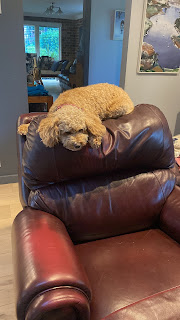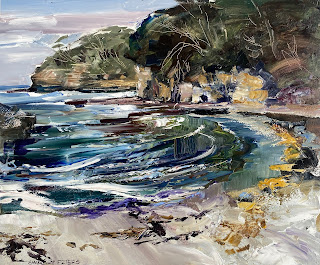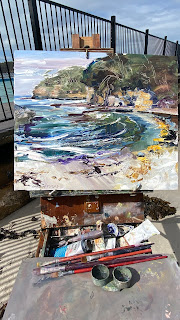I recently visited "Blue Poles" by Jackson Pollock. It is hanging in the Australian National Art Gallery. It's purchase almost destroyed the leftist government back in the 70's. Goodness, they paid over one million dollars!! (Now estimated to be priceless!)
Pleasantly surprised to see that he had signed his painting!
I recently have been advised that "you don't sign abstracts on the front, because it interferes with the image."
My response is: signatures have always interfered. They have cut across the soft and sensitive paint of the masters, and sometimes taken a major role in the composition.
These large elaborate signatures were a form of advertising for the artist, especially on self portraits. This was probably the beginning of the signature tradition, and it evolved into a modest corner position.
The same applies today: it's a form of marketing yourself, as not all visitors to your patron's home will be familiar with your style. It's a chance for networking, and it is respectful to your buyer. They won't have to pull the painting off the wall to remember the artist's name.
The fun with abstracts is that you can hide your signature somewhere in the surface movement, or just fill a corner.
Let me know what you think in the comment section.
Cheers
Shirley



























